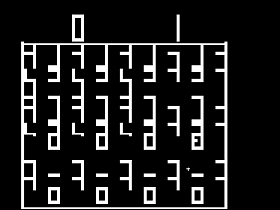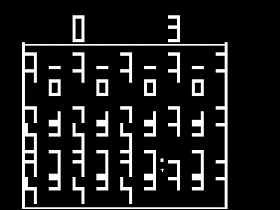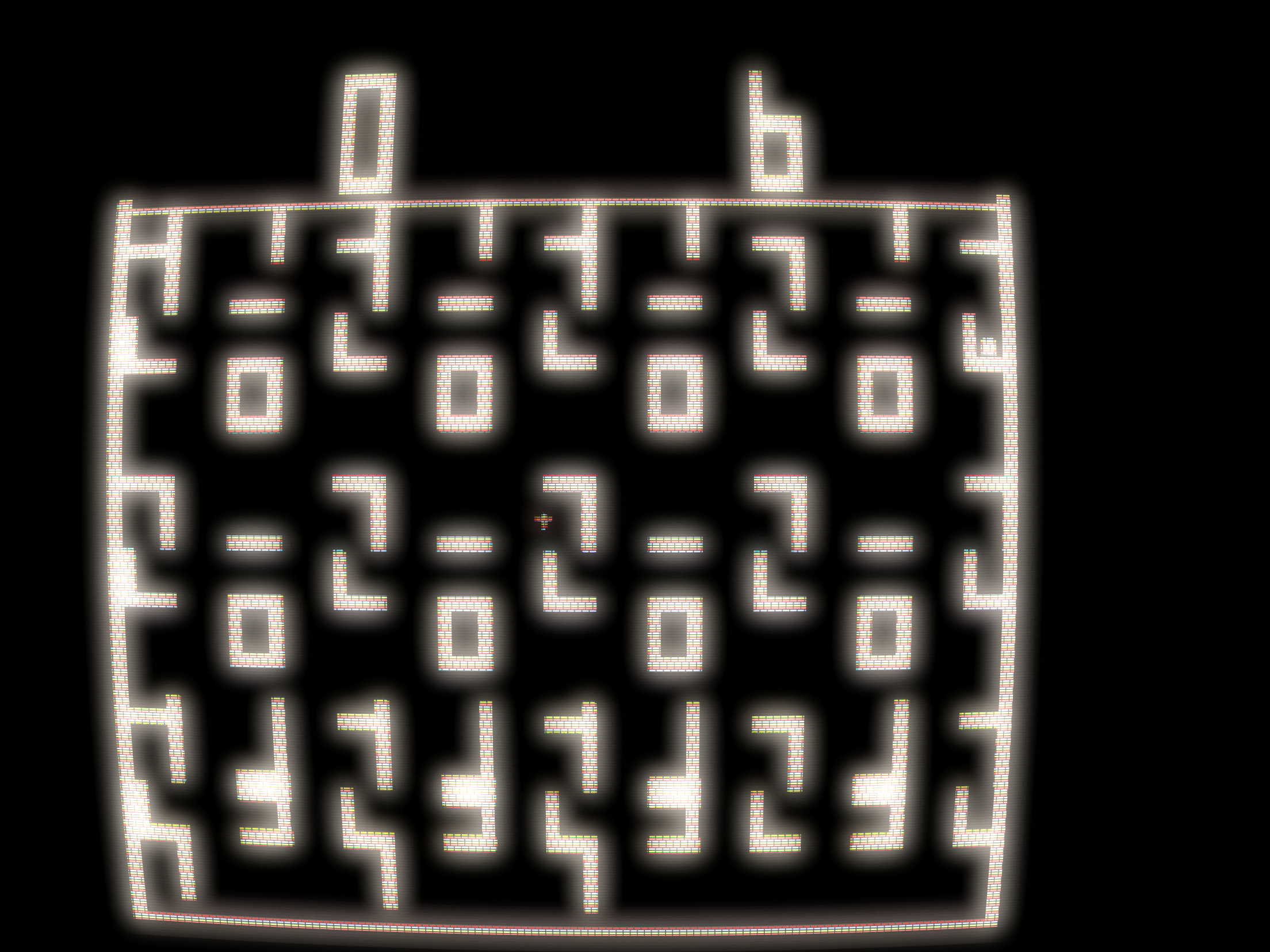 The Game: Two players – one represented by a roving square and the other by a plus sign – roam the ever-changing halls of a maze. The object of the game is for one player to catch the other before time runs out; however, the maze’s ability to constantly reconfigure itself isn’t going to make that easy. (Atari, 1974)
The Game: Two players – one represented by a roving square and the other by a plus sign – roam the ever-changing halls of a maze. The object of the game is for one player to catch the other before time runs out; however, the maze’s ability to constantly reconfigure itself isn’t going to make that easy. (Atari, 1974)
Memories: Among Atari’s first major forays outside of Pong and its endless variations on Pong was Gotcha, a coin-op which can boast the historical first of being the first video maze game. But Gotcha also got stuck with what may be one of the weirdest control schemes ever devised, possibly purely for marketing considerations…and one still wonders what the thought process was behind it.
 In practical terms, there’s nothing unusual about Gotcha‘s controls; each player can move horizontally and vertically, and to facilitate that movement, Gotcha gave each player a joystick – one of the first arcade games to do so. But the mystifying part is this – at what point did someone (and why does one have a feeling that it was probably freewheeling Atari founder Nolan Bushnell) decide that the best thing for Gotcha would be to cover each joystick with a pink rubber…well…boob?
In practical terms, there’s nothing unusual about Gotcha‘s controls; each player can move horizontally and vertically, and to facilitate that movement, Gotcha gave each player a joystick – one of the first arcade games to do so. But the mystifying part is this – at what point did someone (and why does one have a feeling that it was probably freewheeling Atari founder Nolan Bushnell) decide that the best thing for Gotcha would be to cover each joystick with a pink rubber…well…boob?
But indeed that’s exactly what was done with Gotcha. Each joystick was covered in a fleshy pink rubber “mound” (I’m not trying to make this review PG-13 material, but there’s just no way around it), glued to the control panel and giving it the appearance of…well… boobs. The key to the thinking here probably lies in the marketing sell sheet for Gotcha, showing a man groping a young lady from behind, while neither of them seems to be conspicuously depicted as playing the cabinet shown behind them. If Pong has made its mark as the first game that buddies could play in a bar, then  Atari was trying to position Gotcha as a game for couples. Or something like that. Because nothing seals the success of a date like grabbing some machine mammaries.
Atari was trying to position Gotcha as a game for couples. Or something like that. Because nothing seals the success of a date like grabbing some machine mammaries.
In the end, Gotcha faded into relative obscurity, and perhaps one needs to look past the boobs and go to the root of the game to figure out why: Pong was a simulation of tennis, a game that not everyone is good at. em>Gotcha, on the other hand, is a simulation of “tag, you’re it,” with the ever-morphing maze serving as the only element that couldn’t exist in the real world. And if Atari was trying to make Gotcha out to be a game of video tag for lovers, they should’ve known better: that kind of game of tag is always played better in person rather than on a screen.  Anyone who thought, back in 1974, that groping Gotcha‘s creepy mechanical boobs was superior obviously needed a date.
Anyone who thought, back in 1974, that groping Gotcha‘s creepy mechanical boobs was superior obviously needed a date.
Gotcha! scores a couple of important historical firsts with its use of mazes and joysticks, but both of those elements were still several years away from breaking arcade gaming wide open into mainstream pop culture.

